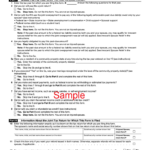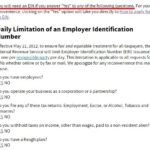Ever wondered why a big chunk of your hard-earned money is taken aback by your employer? That is because payroll taxes are playing a major role in your paycheck.
The two most important taxes you see on your paycheck are FICA (Federal Insurance Contributions Act) and MEDFICA (Medicare Federal Insurance Contributions Act). You must have suffered a shock when you saw it for the first time on your paycheck but didn’t try to know.
Well, you should, because it’s your hard-earned money and you should be aware of what the government does with it.
The government withholds a certain percentage of your wages and funds various programs that the general public, retired workers, and other old people can take advantage of.
So, you will also get this advantage at some point in your life. These taxes are taken from your salary based on your income tax percentage and make up to 7.65 percent of your wages.
There is still a lot more to know about these payroll taxes for retired workers. To make it clear for you, here is a comprehensive review:
What are Payroll Taxes?
Contents

Simply put, payroll taxes are taxes liable on the wages and salaries of the employees. The government uses these taxes to fund various social insurance programs. The most noticeable of which are Social Security and Medicare.
In the United States, Social Security and Medicare taxes are the second-largest sources of government revenue. According to recent tax foundation research, social insurance taxes taken from the employees’ wages make up 23.05% of combined federal, state, and local government revenue.
And the largest portion is occupied by the two payroll taxes i-e FICA and MEDFICA. The former is 12.4% tax to fund social security, and the latter is 2.9% tax to fund Medicare, combined making 15.3%.
Half of 15.3 %( (7.65%) is paid by the employers, and the remaining half is taken from the employee’s paycheck.
➡LEARN MORE: How much does an Employer Pay in Payroll Taxes?
Payroll taxes for Retired Workers
Social Security Payroll Tax
Funds of social security tax go to Old-Age and Survivors Insurance (OASI) Trust Fund. It provides benefits to retired workers and those who are unable to work because of some disease or disability. Sometimes, it is the only source of constant income for those who can’t work.
The earliest age to receive social security is 62 years of age. If the beneficiaries wait until they reach the age of 65, 66, or 67, their monthly benefits are larger. Workers who worked for at least 10 years are eligible for this fund.
For 2021, the maximum income on which OASDI tax is applicable is $142,800. The wage cap is adjusted every year to take into account the increase in average wages.
Medicare Payroll Tax
It is also known as the Medicare Hospital Insurance (HI) tax. Revenue from Medicare funds two trusts:
- The Hospital Insurance Trust Fund. It is used to pay for the hospital care and stays, inpatient nursing care, and, in some cases, home care and hospice care.
- The Supplementary Medical Insurance Trust Fund. It is used for laboratory tests and screenings, x-rays, ambulance service, outpatient care, and prescription drugs.
Unlike the social security tax, there is no wage cap on Medicare tax. Both employee and employer contribute 1.45% of their income to Medicare.
From 2019, an additional 0.9 % is imposed on wages of more than $250,000 for married filers who file jointly), $125,000 for married filers who file separately, and $200,000 for single filers and other taxpayers.






